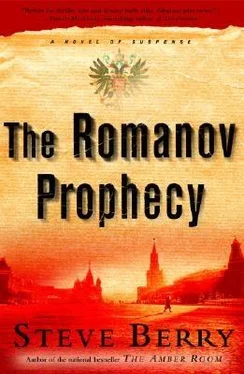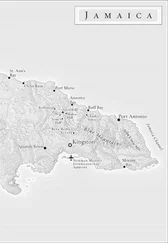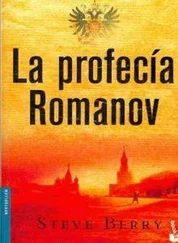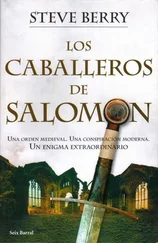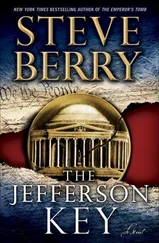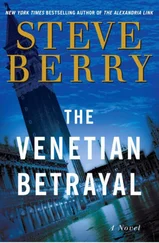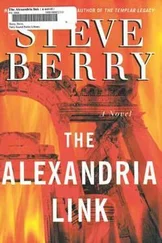Steve Berry - The Romanov Prophecy
Здесь есть возможность читать онлайн «Steve Berry - The Romanov Prophecy» весь текст электронной книги совершенно бесплатно (целиком полную версию без сокращений). В некоторых случаях можно слушать аудио, скачать через торрент в формате fb2 и присутствует краткое содержание. Жанр: Триллер, на английском языке. Описание произведения, (предисловие) а так же отзывы посетителей доступны на портале библиотеки ЛибКат.
- Название:The Romanov Prophecy
- Автор:
- Жанр:
- Год:неизвестен
- ISBN:нет данных
- Рейтинг книги:4 / 5. Голосов: 1
-
Избранное:Добавить в избранное
- Отзывы:
-
Ваша оценка:
- 80
- 1
- 2
- 3
- 4
- 5
The Romanov Prophecy: краткое содержание, описание и аннотация
Предлагаем к чтению аннотацию, описание, краткое содержание или предисловие (зависит от того, что написал сам автор книги «The Romanov Prophecy»). Если вы не нашли необходимую информацию о книге — напишите в комментариях, мы постараемся отыскать её.
The Romanov Prophecy — читать онлайн бесплатно полную книгу (весь текст) целиком
Ниже представлен текст книги, разбитый по страницам. Система сохранения места последней прочитанной страницы, позволяет с удобством читать онлайн бесплатно книгу «The Romanov Prophecy», без необходимости каждый раз заново искать на чём Вы остановились. Поставьте закладку, и сможете в любой момент перейти на страницу, на которой закончили чтение.
Интервал:
Закладка:
He arrived as the site was closing for the day. He stepped from the car and quickly tied the belt of his overcoat, then slipped on a pair of black leather gloves. The sun was already below the horizon, an autumn night closing in, the sparkling blue-and-gold-starred onion domes dull in the fading light. A blistering wind howled with a rumble that reminded him of artillery fire.
Lenin had come with him. The other three members of the Secret Chancellory had unanimously decided that Hayes and Lenin should be the ones to make the initial approach. The patriarch might appreciate the risks more if he saw and heard firsthand that a Russian military line officer was willing to stake his reputation on the coming venture.
He watched the cadaverous Lenin smooth his gray wool coat and deftly wrap a maroon scarf around his neck. They'd hardly spoken on the ride up. But each knew what had to be done.
A black-robed priest with a mosslike beard waited at the main gate while a steady procession of pilgrims streamed out on either side of him. The priest led them inside thick stone walls directly to the Cathedral of the Dormition. The church's interior was candlelit, shadows flickered across a gilded iconostasis towering behind the main altar, and acolytes busily closed the sanctuary for the day.
They followed the priest down into a subterranean room. They'd been told the meeting would occur in the crypt of All Saints Hallowed, the place where patriarchs of the Russian Orthodox Church lay buried. The vault below was tight, its walls and floor lined with light gray marble. An iron chandelier splashed dim rays across a vaulted ceiling. Elaborate tombs were decorated with gilded crosses, iron candelabra, and painted icons.
The man kneeling before the farthest tomb was at least seventy, tufts of bushy gray hair sprouting from a narrow head. His ruddy face was covered with a matted beard and a mustache thick as fleece. A hearing aid protruded from one ear and age spots dotted hands intertwined in prayer. Hayes had studied photographs of the man, but this was the first time he'd seen His Holiness, Patriarch Adrian, apostolic head of the thousand-year-old Russian Orthodox Church, in the flesh.
Their escort left them alone, footsteps retreating back up into the cathedral.
A door closed above.
The patriarch crossed himself and stood. "Gentlemen, good of you to come." The voice was deep and gravelly.
Lenin introduced himself and Hayes.
"I am familiar with you, General Ostanovich. My sources tell me I am to listen to what you propose and decide the merits."
"We appreciate the audience," Lenin said.
"I thought here in the crypt the safest place for our talk. It is private beyond reproach. Mother Earth will shield us from any inquisitive ears. And perhaps the souls of the great men buried here, my predecessors, might inspire me to the proper course."
Hayes wasn't fooled by the explanation. The proposal they were about to extend was not something a man in Adrian's position could afford to have become public. It was one thing to consequently benefit, quite another to openly participate in a treasonous conspiracy-particularly for a man who was supposed to be above politics.
"I wonder, gentlemen, why should I even consider what you propose? Since the end of the Great Interruption, my church has enjoyed an unparalleled resurgence. With the Soviets gone, there is no more persecution or restrictions. We have baptized new members by the tens of thousands, and churches are opening every day. Soon we will be back to where we were before the communists arrived."
"But there could be so much more," Lenin said.
The old man's eyes flashed bright like coals in a dying fire. "And it is that possibility that intrigues me. Please explain."
"An alliance with us will secure your place with the new tsar."
"But any tsar will have no choice but to work with the church. The people would demand no less."
"We live in a new age, Patriarch. A public relations campaign can cause more damage than any repressive police force ever could. Think about it. The people are starving, yet the church continues to erect gilded monuments. You parade about in embroidered robes, but lament when the faithful don't support their parishes with adequate contributions. All the support you now enjoy could be eroded by a few well-publicized scandals. Some of the men in our association control the largest media outlets-newspapers, radio, television-and much can be done with that power."
"I am shocked that a man of your stature would utter such threats, General." The words were strong, though voiced calmly.
Lenin appeared unfazed by the rebuke. "This is a difficult time, Patriarch. Much is at stake. Military officers are not paid enough to feed themselves, much less their families. There are invalids and disabled veterans receiving nothing in the way of a pension. Just last year, five hundred line officers killed themselves. An army that once shook the world is now decimated to the point of nothing. Our government has crippled the military complex. I doubt, Holiness, that any of our missiles could even leave their silos. This nation is defenseless. Our only saving grace is that no one, as yet, knows this."
The patriarch considered the diatribe. "How could my church be of aid to the coming change?"
"The tsar will need the full support of the church," Lenin said.
"He would have that anyway."
"By full support I mean whatever may be necessary to assure that popular opinion is controlled. The press must be free, at least in principle, the people allowed to voice dissent, within reason. The whole idea of a tsarist return is a break with the oppressive past. The church could be of valuable assistance to ensure a stable, long-lasting government."
"What you really mean is that others in league with you don't want to risk the church opposing them. I am not ignorant, General. I know the mafiya is part of your group. Not to mention the leeches from the government ministry who are every bit as bad. You, General, are one thing. They are quite another."
Hayes knew the old man was right. Government ministers were nearly universally on the take from either the mafiya or the new rich. Bribes were a standard way to conduct the public's business. So he asked, "Would you rather have communists?"
The patriarch turned to him. "What would an American know of this?"
"It has been my business for three decades to understand this country. I represent a huge conglomerate of American investors. Companies with billions at stake. Companies that could also make sizable contributions to your various parishes."
A mirthful grin came to the old man's bearded face. "Americans think money buys everything."
"Doesn't it?"
Adrian stepped close to one of the elaborate tombs, his hands clenched together, his back to his two guests. "A fourth Rome."
"Excuse me?" Lenin asked.
"A fourth Rome. That's what you propose. In the time of Ivan the Great, Rome, where the first pope sat, had already fallen. Then Constantinople, where the Eastern pope sat, succumbed. After that, Ivan proclaimed Moscow the third Rome. The only place left on Earth where the church and state merged into a single political entity-headed by him, of course. He predicted there would never be a fourth."
The patriarch turned and faced them.
"Ivan the Great married the last Byzantine princess and visibly invested his Russia with her Byzantine heritage. After the fall of Constantinople to the Turks in 1453, he proclaimed Moscow the secular center of the Christian world. Clever, actually. It allowed him to decree himself head of the eternal union between church and state, imposing upon himself the sacred majesty of a universal priest-king, wielding authority in God's name. From Ivan on, every tsar was considered divinely appointed and Christians were required to obey. A theocratic autocracy, one that combined church and dynasty into an imperial heritage. It worked well for more than four hundred and fifty years until Nicholas II-when the communists murdered the tsar and dissolved the union of church and state. Now, perhaps, a reemergence?"
Читать дальшеИнтервал:
Закладка:
Похожие книги на «The Romanov Prophecy»
Представляем Вашему вниманию похожие книги на «The Romanov Prophecy» списком для выбора. Мы отобрали схожую по названию и смыслу литературу в надежде предоставить читателям больше вариантов отыскать новые, интересные, ещё непрочитанные произведения.
Обсуждение, отзывы о книге «The Romanov Prophecy» и просто собственные мнения читателей. Оставьте ваши комментарии, напишите, что Вы думаете о произведении, его смысле или главных героях. Укажите что конкретно понравилось, а что нет, и почему Вы так считаете.
